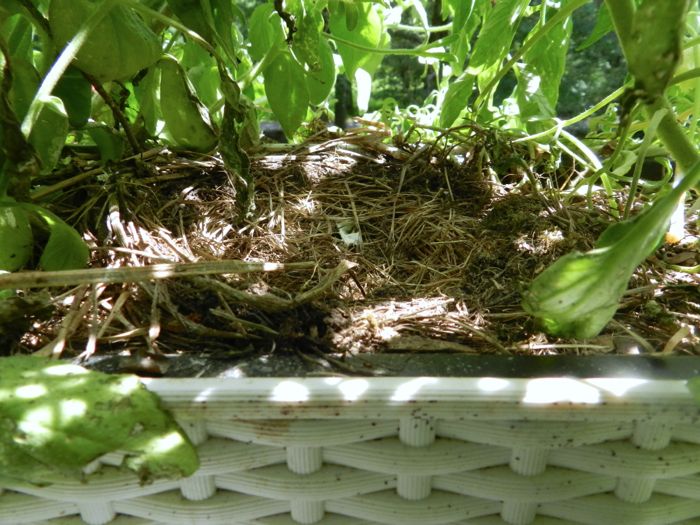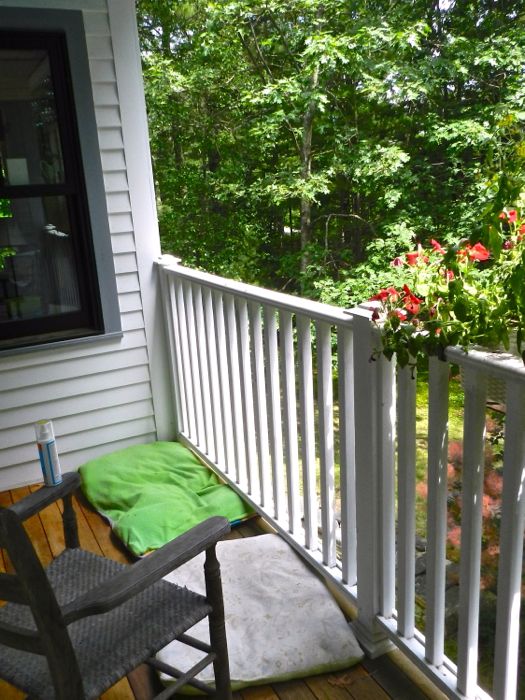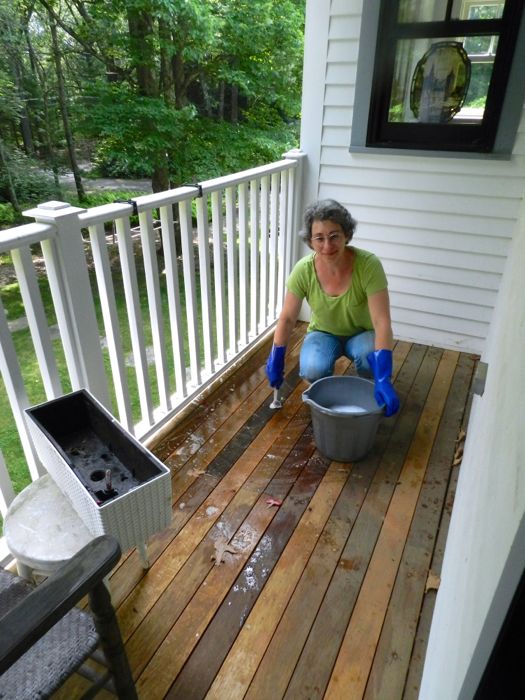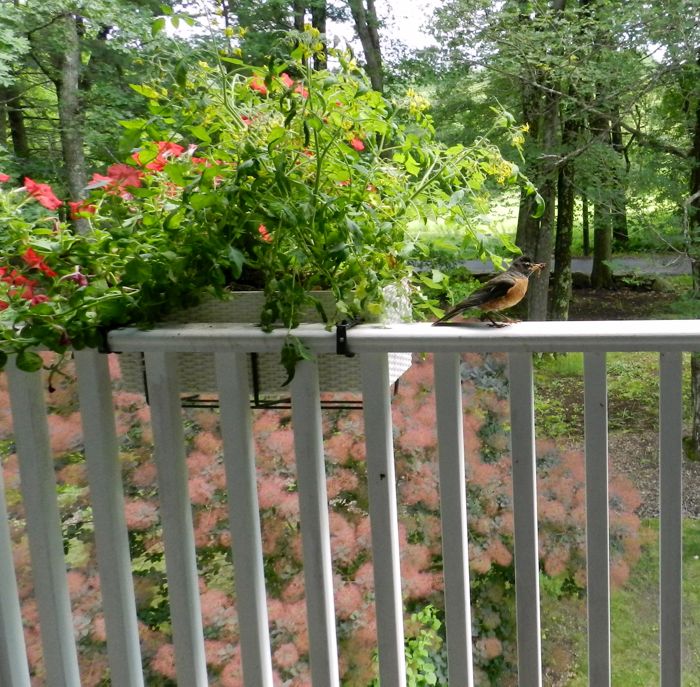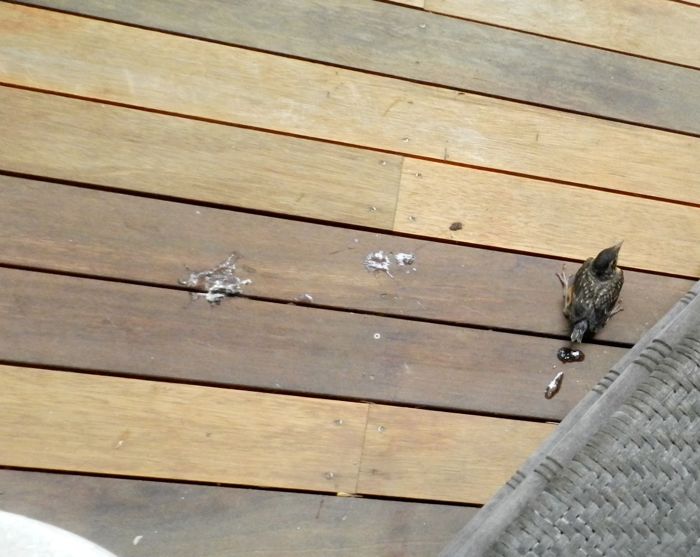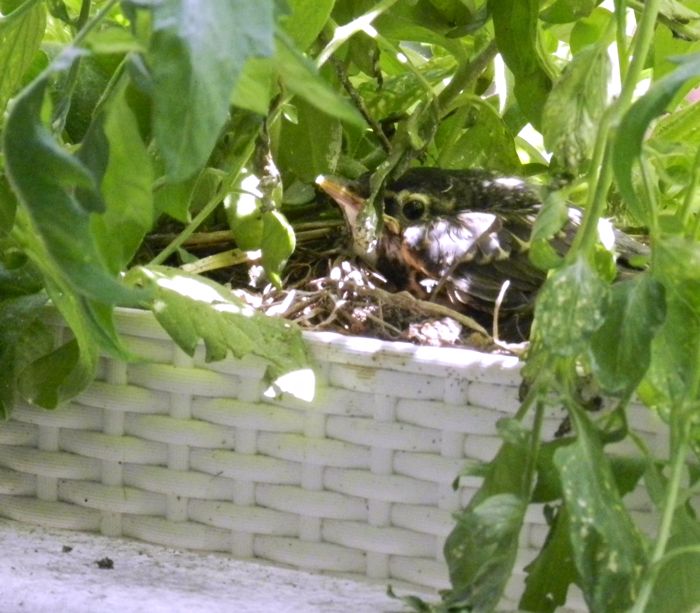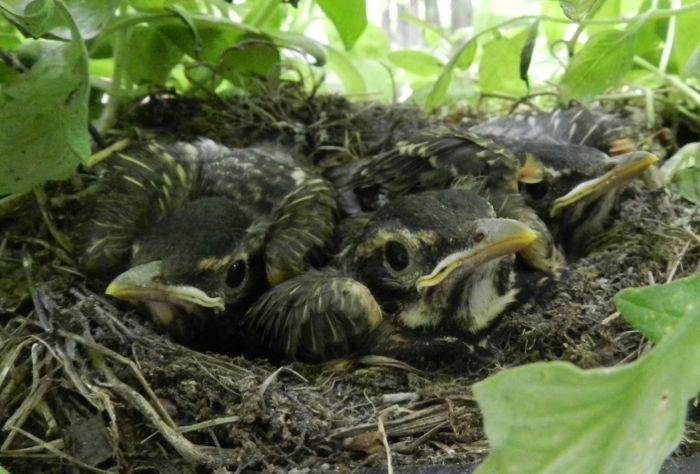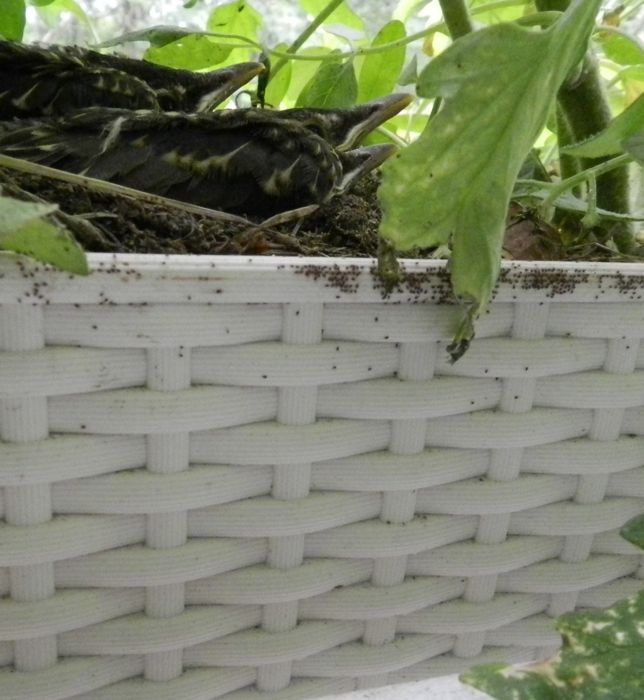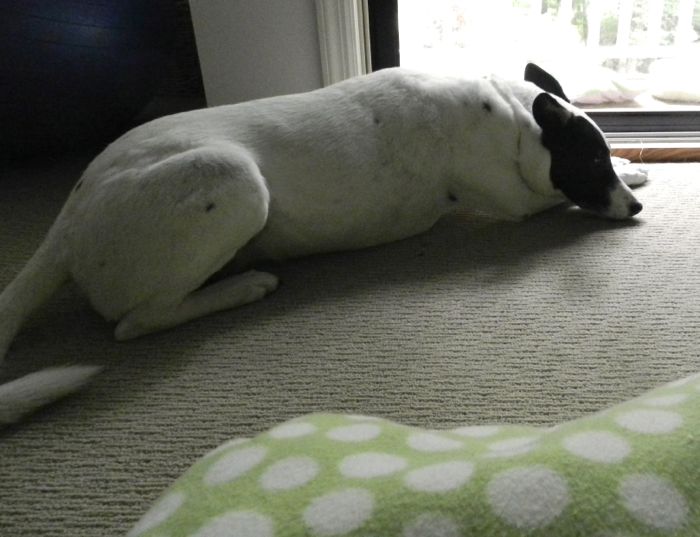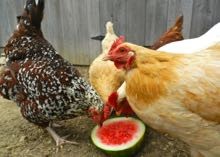Chickens are charming because they are innately curious, busy-body birds. They’re in constant motion, investigating new things (is this shiny droplet food?), socializing, scratching, pecking, dozing, and chasing (each other and anything small that moves that might be edible.) Unless they are outside in a large and complex environment, they get bored. Boredom, as with all animals, leads to trouble. With chickens, that trouble leads to bad behaviors, like pecking each other, and pulling out feathers (their own and others). Chickens that would otherwise be high-status hens become bullies. Chickens that would otherwise be wallflowers are cornered and pounded on. When that happens, you end up with a flock that has more in common with its dinosaur ancestors than with the delightful farm animals that you’d imagined.
In many backyard situations, chickens are housed in a too-small confines, with a dirt yard and nothing to do. They’re fed treats, like cracked corn, that they fill up on quickly. This is bad for their systems, and they get fat, which leads to egg-laying issues and disease. Add boredom to the mix, and it can be a lethal situation. But, proper housing and management can alleviate all of these issues!
Assuming that you have enough space for your flock, (I’ve written about minimum coop and pen sizes here) what follows are ways to keep your hens from being bored.
Uppermost in a chicken’s mind is eating. A hen is hard-wired to search for food by looking and scratching. It’s not enough to provide pellets out of a feeder, as that need to hunt and peck will end up being focused on something else (like a hen at the bottom of the flock’s status or eating feathers.) Provide places to scratch and things to peck that will last hours, if not all day.
Watermelon, pumpkins, and other large, hard-shelled foods can be put out for your hens and will keep them busy for hours. These foods are also a healthy addition to their diet (unlike the sweet high calorie feed blocks that I don’t recommend.)

Provide a decomposing log for them to peck at. Move it around once a week or so to expose the soft ground and bugs underneath.
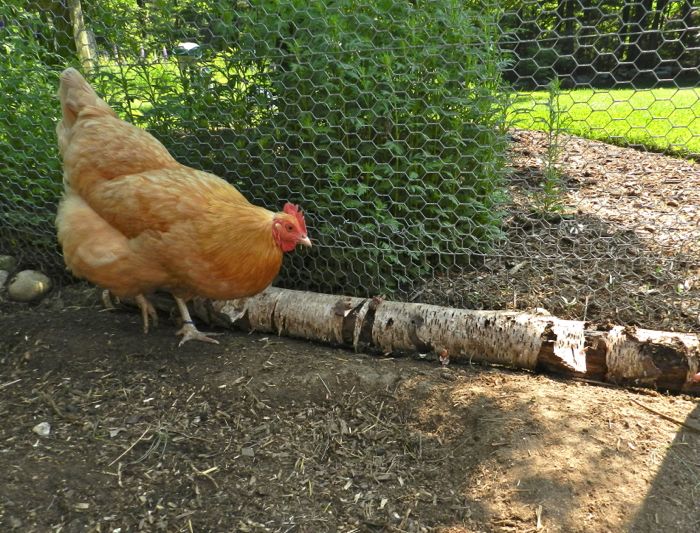
What keeps my hens the busiest is the compost pile inside of the chicken run. This photo shows a mess of green weeds that I’ve just put in there. The girls will pick out bugs, eat the greens and shred the rest. They’ll dig down and turn over the compost. It is an endlessly fascinating place for them. They’ll get good things to eat and stay busy, and I’ll get rich, loose dark dirt in a month.

Provide something new for them to investigate. Simply putting in a pine branch will make their day.
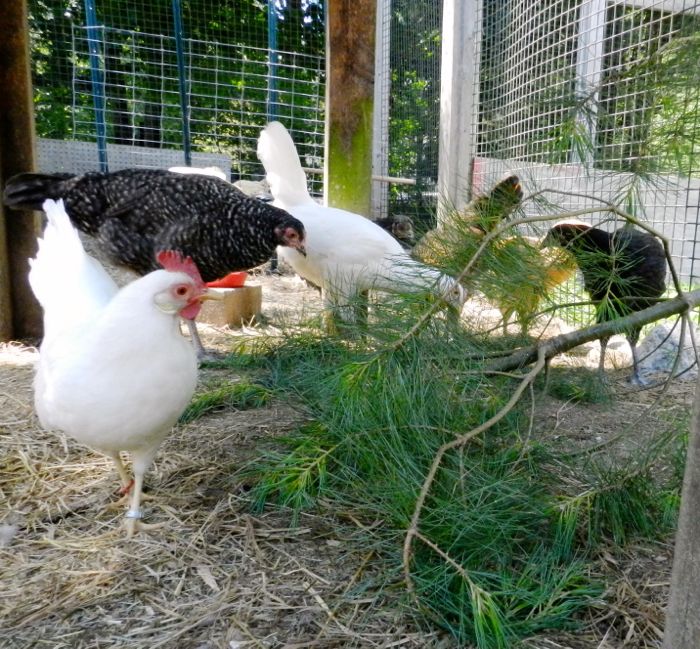
Although chickens don’t fly (at least not well, it’s more like the dancing hippos in Fantasia) they do like to get up off the ground, and they like height options. Provide outside roosts. (Not every chicken gets to have conversations with goats, but they do like interacting with other species.)
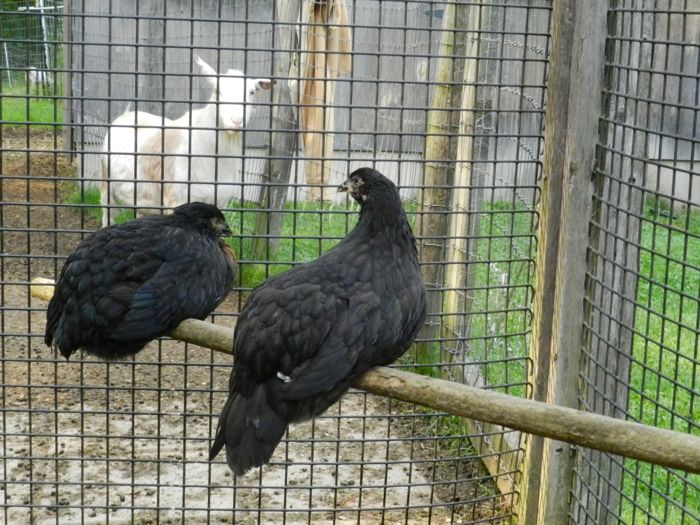
They also like stumps.
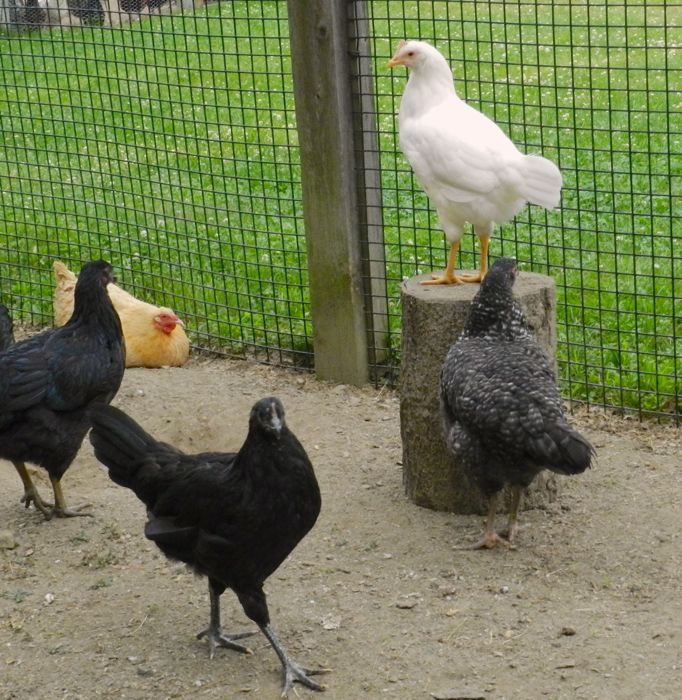
Dust baths are essential both for health and for the social life of the flock. The run should have a loose pile of dirt to get into.
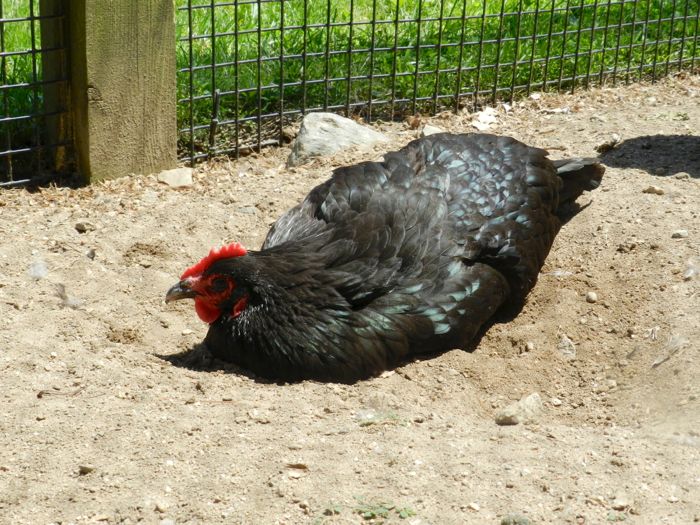
You have to give your flock things to do during inclement weather. Just like children can drive a parent crazy on a rainy day, so too, your chickens will need distractions when stuck indoors. A kitty litter box half-filled with sand and some food-grade DE will give them something to do.
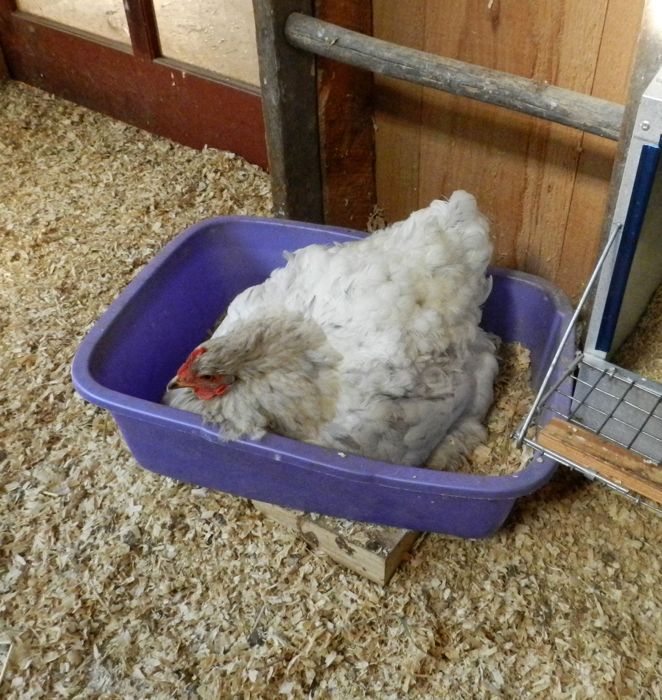
Greens tucked into a suet feeder will also keep the chickens out of trouble.
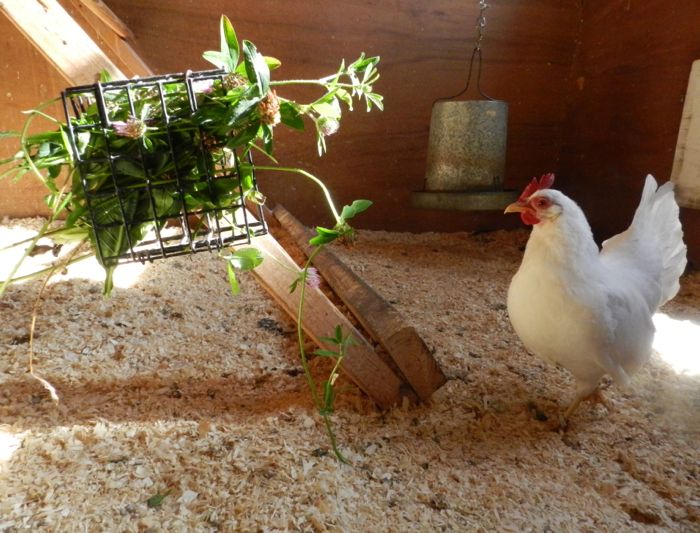
And, of course, you can always set up a rousing game of cabbage tetherball.
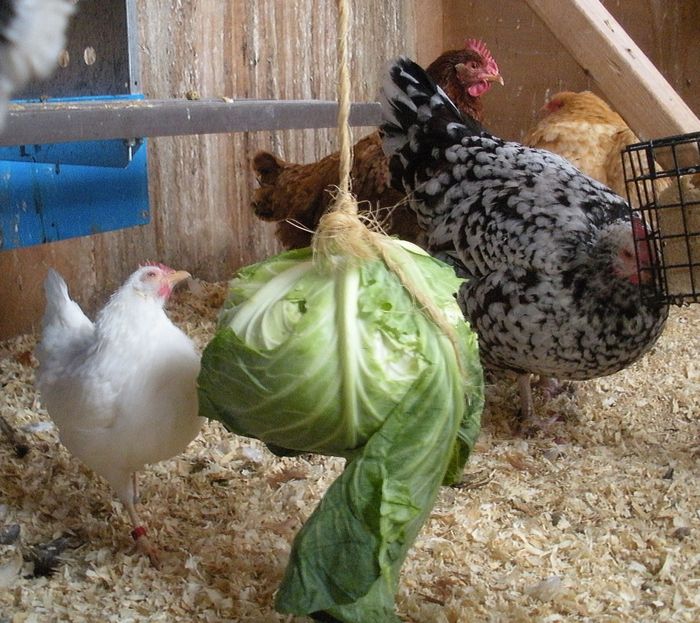
It doesn’t take much to engage your chickens in activities that will keep everyone happy – including you, because, really, being a spectator to the antics is part of the fun.
